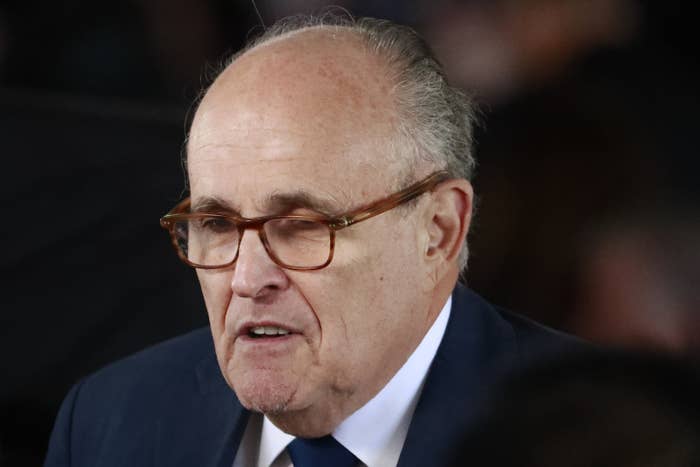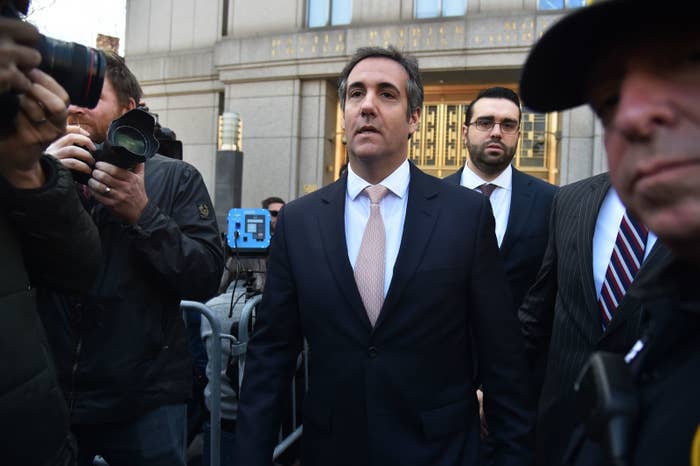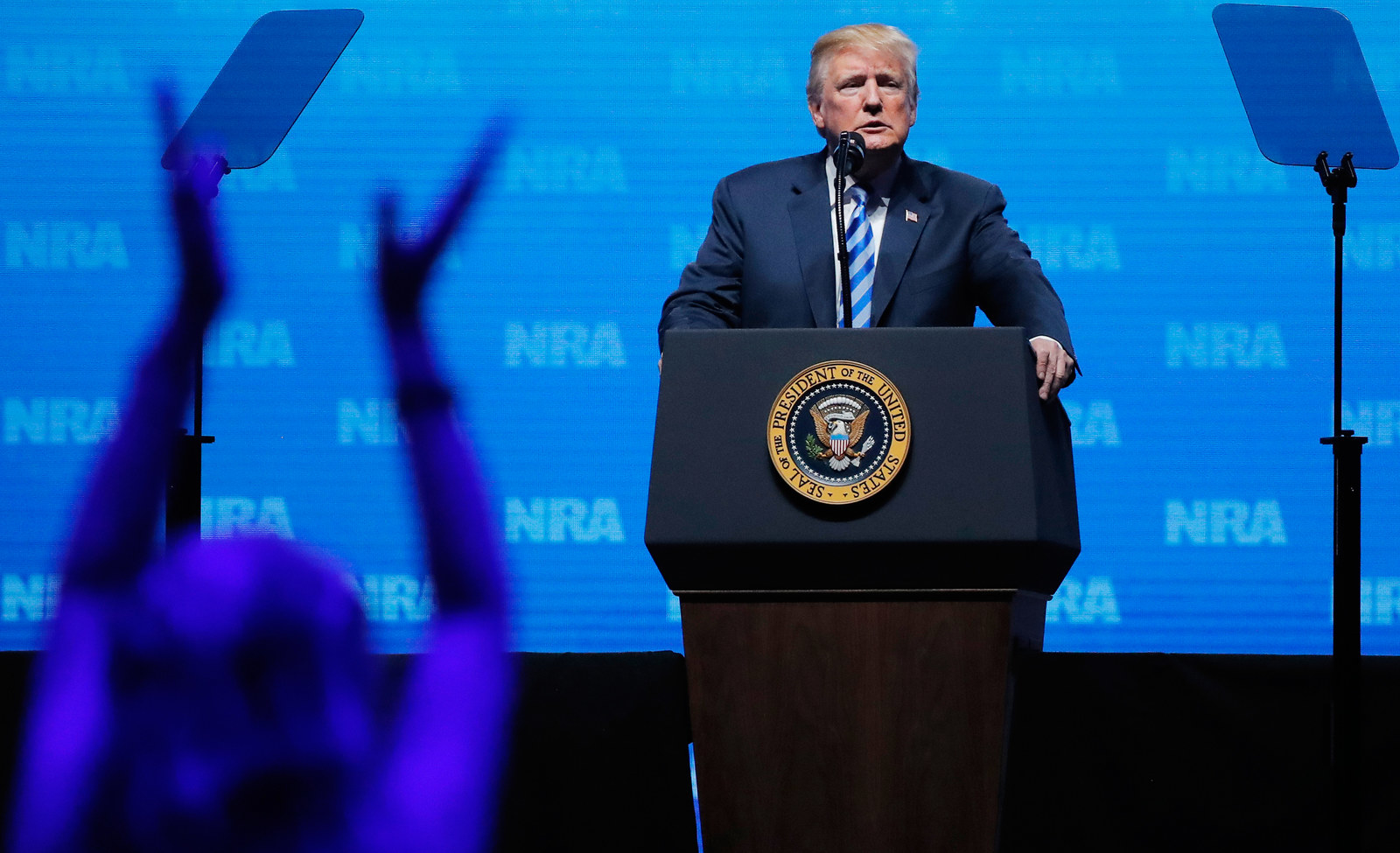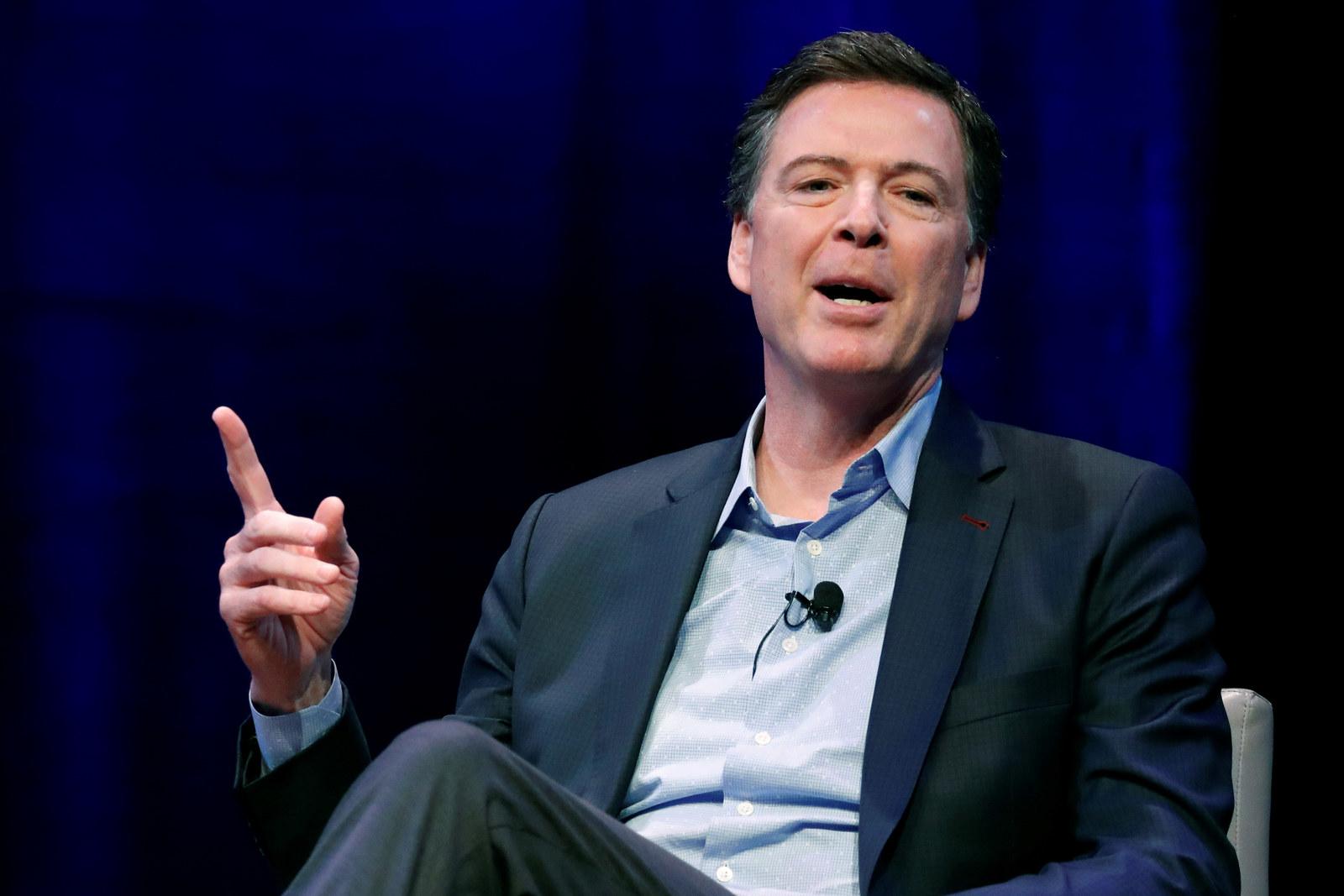
After two days of nearly nonstop interviews about the $130,000 payment to Stormy Daniels in the days before the 2016 election, Rudy Giuliani stepped back Friday to issue a clarifying statement after President Donald Trump said that his new lawyer had just started and "wasn't totally familiar with everything."
The payment came in October 2016 after Trump's longtime personal lawyer Michael Cohen negotiated a settlement agreement with Daniels, the adult film star whose legal name is Stephanie Clifford. In that agreement, she agreed not to speak about an alleged relationship she claims existed between her and Trump more than a decade ago.
After the Wall Street Journal reported the existence of the payment early this year, Cohen eventually said that he'd facilitated the payment personally, out of his own funds, and that he was not repaid by either the Trump Organization or Trump's campaign. The statement made no mention of whether he had been repaid by Trump himself.
A month ago, asked whether he knew about the payment, Trump simply said, "No." Later in April, Trump acknowledged in a call-in appearance on Fox & Friends that Cohen had represented him in "this crazy Stormy Daniels deal.”
Most of the action in recent months relating to the “Stormy story” has taken place in California, where Cohen had gone to an arbitrator to have the hush agreement provision enforced against Daniels and where Daniels had sued to have the entire agreement tossed out. (The case is on hold for now due to the pending criminal investigation against Cohen.)
Enter Rudy Giuliani, announced April 19 as joining Trump's outside legal team on the Russia investigation.
On Wednesday night, Giuliani revealed on Fox News that Trump had repaid Michael Cohen for the Daniels payment — to the surprise of host Sean Hannity, who was conducting the interview.
Giuliani then proceeded to give a series of interviews over the next day and a half that covered a wide range of topics, including why Trump fired former FBI director James Comey and what might happen to Americans being held by North Korea — statements he had to walk back in an interview with BuzzFeed News on Thursday afternoon.
Giuliani's comments regarding the reasons for the payment to Daniels and the timeline of when Trump made the repayment, and when he became aware of what the repayment was for, have shifted several times since the Hannity interview, leading to Friday's "clarification" statement.
In the statement, which Giuliani wrote "is intended to clarify the views I expressed over the past few days," he made three points:

— "First: There is no campaign violation. The payment was made to resolve a personal and false allegation in order to protect the President’s family. It would have been done in any event, whether he was a candidate or not."
This one appears, primarily, to be the result of Giuliani's Thursday morning comments suggesting that the timing of the payment did, indeed, relate to the election.
Giuliani told BuzzFeed News on Wednesday night that the 2016 payment was "a payment to remove personal embarrassment to Melania [Trump]" — adding, "I don't think they thought about it as a campaign thing," although he acknowledged that others might disagree.
Others, of course, have disagreed. But then Giuliani appeared to disagree with himself the next morning in his appearance on Fox & Friends.
"Imagine if that came out on Oct. 15, 2016, in the middle of the, you know, last debate with Hillary Clinton," Giuliani said of the payment. "Cohen didn’t even ask. Cohen made it go away. He did his job."
The issue could be a key question when determining whether the payment would be considered either an in-kind contribution to the campaign or, if Trump repaid it, as an unreported loan to the campaign. (Regardless of that, however, others have noted that Trump did not include Cohen's payment, if it was a loan, on his financial disclosures — raising a different legal question altogether.)

— "Second: My references to timing were not describing my understanding of the President’s knowledge, but instead, my understanding of these matters."
The timeline of when Trump repaid Cohen and when he knew that he was paying Cohen for the Daniels payment, specifically, is key to legal questions about intent and knowledge — but, due to Trump's statements, the timeline also is important to questions of Trump's honesty to the American people. In Thursday's interview with BuzzFeed News, Giuliani said that Trump and he had discussed the circumstances surrounding the timing specifically.
Giuliani said he and Trump "had been together a couple of days ago and talked about it in much more detail, and verified, and verified as much as we could of it." He also said they talked Wednesday afternoon, at which point Giuliani said they decided Giuliani would talk about the repayment in one of his two upcoming Fox News interviews.
In talking with BuzzFeed News on Wednesday and Thursday, it was clear, as Giuliani said in Friday's clarification statement and Trump suggested Friday morning, that Giuliani is still getting up to speed on some of the specifics. Some of his answers were couched in terms of Giuliani's belief or understanding of the facts, for example.
At other times, however, Giuliani would give a precise, direct answer. Those statements will remain — and Giuliani will have to specifically address any that he now wishes to walk back.
For example, after White House press secretary Sarah Huckabee Sanders said Thursday that Trump did not initially know about the Daniels payment in 2016 but "eventually" learned of it, I asked Giuliani if Trump's learning about the Daniels payment was the reason for his repayment.
Giuliani unambiguously responded, "No."
When he went on to describe when Trump learned of it, however, he shifted his language to a more conditional answer, saying, "I don’t think he put it all together until it was all paid out or mostly paid out," and adding a further caveat that he "wasn't there at the time."
In a later Giuliani interview with NBC News' Kristen Welker, Giuliani shifted his answer further — but using the same "I don't think" framing — saying, "I don't think the president realized he paid him [Cohen] back for that specific thing until we [his legal team] made him aware of the paperwork," he said.
Of course, the initial Wall Street Journal story about the Daniels payment came out Jan. 12 — at which time, depending on the Giuliani interview referenced, Trump was still paying Cohen $35,000 a month as part of the repayment.
Even if Trump's lawyers wish to make an argument that Cohen hadn't told Trump about the Daniels payment when it happened in 2016 — or in early 2017 when Giuliani says Trump agreed to begin paying Cohen $35,000 a month for a year to offset outstanding expenses — it's nearly impossible to believe that Trump wouldn't have realized that part of the expenses he was repaying included the $130,000 payment splashed across the Wall Street Journal on Jan. 12.
In this sense, Giuliani's second clarification is a warning to reporters to be cautious about reporting his answers if they contain similar conditional language — so that the value of Giuliani's claims can be accurately assessed. More bluntly, it means that Giuliani needs to become "totally familiar with everything" or risk undermining his ability to serve as Trump's lawyer and the outside legal team's de facto spokesperson.

— "Third: It is undisputed that the President’s dismissal of former Director Comey — an inferior executive officer — was clearly within his Article II power. Recent revelations about former Director Comey further confirm the wisdom of the President’s decision, which was plainly in the best interests of our nation."
In the original interview with Hannity on Wednesday night, Giuliani spoke at length about Comey, at one point telling the host, "He fired Comey because Comey would not, among other things, say that he wasn’t a target of the investigation. He's entitled to that. Hillary Clinton got that and he couldn't get that. He fired him and he said, 'I'm free of this guy.'"
In his Thursday interview with BuzzFeed News, he walked back that comment, saying, “I think it was based more on my knowledge of what was going on during the campaign. I urged him to fire Comey on day one. I mean, maybe I was thinking more of why I would fire him. I would fire him because he was a lousy FBI director.”
Friday's clarification looks to be an attempt to more clearly and widely disseminate that walk-back effort.

